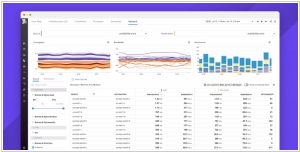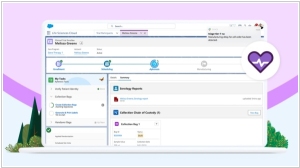Datadog vs Loggly
June 03, 2023 | Author: Michael Stromann
11
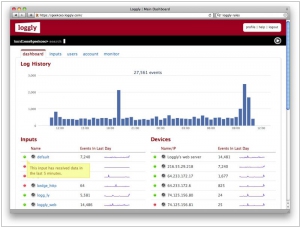
Solve Operational Problems Faster. Make all of your logs accessible to everyone in one place. No more logging into individual machines. Use searches, filters and graphs to spot trends and narrow down potential root causes. Set up in minutes. No software or agents to install. Works with all standard logging facilities. Owned by SolarWinds.
Datadog and Loggly are both popular log management and analysis platforms, but they differ in several aspects:
1. Focus: Datadog is a comprehensive monitoring platform that offers log management as one of its many features. It provides real-time monitoring, infrastructure and application performance monitoring, APM, and log analytics. Loggly, on the other hand, is primarily focused on log management and analysis, offering centralized log storage, searching, and visualizations.
2. Scalability and Performance: Datadog is known for its scalability and can handle high volumes of log data, making it suitable for large-scale environments. It offers robust infrastructure and cloud monitoring capabilities, along with log management. Loggly is also scalable but may have limitations in handling extremely high log volumes compared to Datadog.
3. Features and Integrations: Datadog provides a wide range of features beyond log management, such as real-time monitoring, alerting, dashboards, APM, and collaboration tools. It offers extensive integrations with various platforms, frameworks, and services. Loggly, on the other hand, specializes in log analysis and offers features like advanced search queries, customizable dashboards, and alerts. It has integrations with popular logging frameworks and libraries.
4. User Interface and Ease of Use: Datadog offers a user-friendly and intuitive interface with visually appealing dashboards and interactive visualizations. It provides a seamless experience for users to navigate and analyze log data. Loggly also offers a user-friendly interface, focusing on simplicity and ease of use for log management tasks.
5. Pricing: Both Datadog and Loggly have pricing models based on the volume of log data ingested and stored. Datadog offers various pricing plans based on the desired features and the number of hosts or containers being monitored. Loggly's pricing is also based on log data volume and retention duration.
See also: Top 10 IT Monitoring software
1. Focus: Datadog is a comprehensive monitoring platform that offers log management as one of its many features. It provides real-time monitoring, infrastructure and application performance monitoring, APM, and log analytics. Loggly, on the other hand, is primarily focused on log management and analysis, offering centralized log storage, searching, and visualizations.
2. Scalability and Performance: Datadog is known for its scalability and can handle high volumes of log data, making it suitable for large-scale environments. It offers robust infrastructure and cloud monitoring capabilities, along with log management. Loggly is also scalable but may have limitations in handling extremely high log volumes compared to Datadog.
3. Features and Integrations: Datadog provides a wide range of features beyond log management, such as real-time monitoring, alerting, dashboards, APM, and collaboration tools. It offers extensive integrations with various platforms, frameworks, and services. Loggly, on the other hand, specializes in log analysis and offers features like advanced search queries, customizable dashboards, and alerts. It has integrations with popular logging frameworks and libraries.
4. User Interface and Ease of Use: Datadog offers a user-friendly and intuitive interface with visually appealing dashboards and interactive visualizations. It provides a seamless experience for users to navigate and analyze log data. Loggly also offers a user-friendly interface, focusing on simplicity and ease of use for log management tasks.
5. Pricing: Both Datadog and Loggly have pricing models based on the volume of log data ingested and stored. Datadog offers various pricing plans based on the desired features and the number of hosts or containers being monitored. Loggly's pricing is also based on log data volume and retention duration.
See also: Top 10 IT Monitoring software
Datadog vs Loggly in our news:
2018. SolarWinds acquires log-monitoring service Loggly
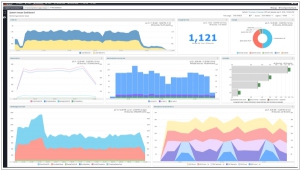
SolarWinds, an IT management company, has recently completed the acquisition of the cloud-based log-monitoring and analytics service, Loggly. Loggly's marketing materials highlight that a significant portion of the Fortune 500, including renowned companies like Lenovo, Pizza Hut, and Dell, utilize their services. SolarWinds states that this strategic acquisition will expand their engineering and analytics expertise, contributing to the development of a comprehensive monitoring platform. Despite its history of acquiring various companies, including Pingdom, SolarWinds intends to maintain the Loggly brand and product as an ongoing entity.
2015. Cloud monitoring service Datadog fetched $31M
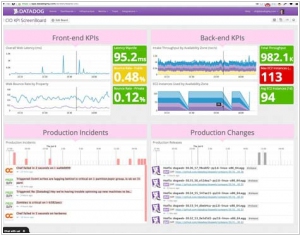
Datadog, a platform that enables companies to monitor the performance of their diverse cloud deployments, has secured a new round of Series C funding amounting to $31 million. With notable customers such as Netflix, Spotify, EA, and Mercadolibre, the company has expanded its workforce from 25 employees last year to 75 employees presently. Moreover, Datadog has ambitious plans to double or even triple its headcount in the coming year. While facing competition from rivals like Boundary, Server Density, and Stackdriver (acquired by Google last year), Datadog continues to provide its unique value proposition.

